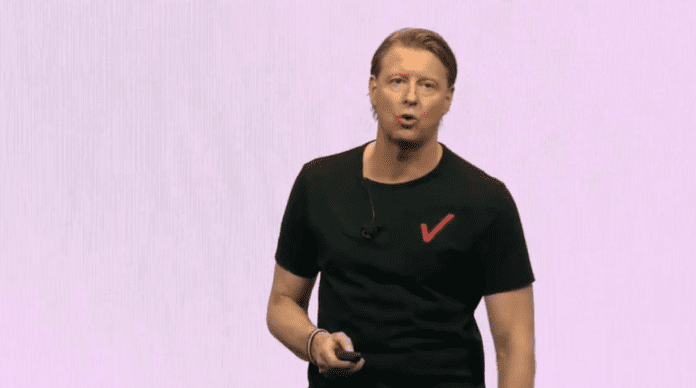In 2019 Verizon launched mobile 5G in parts of 31 cities and a number of NFL stadiums and other arenas. While CEO Hans Vestberg, speaking to CNBC during the World Economic Forum in Davos, Switzerland, wouldn’t reveal the 2020 deployment roadmap, he did say the operator expects its 5G mobility business to yield service revenues in the 2021 timeframe.
Vestberg didn’t specify 2020 capex guidance but noted the 2019 capex range of $17 billion to $18 billion and said, “We see that trend continue. We’re building the network in a new way so we fit in everything. We do a lot of fiber, we do a lot of 4G, we do a lot of 5G, and we do it all at once.”
In response to a question around customer adoption, particularly as it relates to the availability of a 5G-compatible Apple iPhone, Vestberg stressed that just like with 4G, 5G adoption will be a gradual process.
“It’s an important event whenever Apple will come out with a 5G phone because, given the market share they have in the U.S., that’s going to be important. People don’t change phones immediately and it goes over time. We will see some impact on our revenues in 2021 from the mobility case. The expectation from external sources is that in 2024, half of the U.S. population will have bought the 5G phone. It will start to be gradually seen on our revenue line. You need to get some certain amount of customers before you see an impact.”
Vestberg, formerly the CEO of Swedish network equipment vendor Ericsson, also commented on the role of telecom operators relative to providing content offerings. Verizon is currently offering unlimited customers a free year of the Disney+ streaming service. AT&T, for its part, acquired Time Warner, now Warner Media, and is prepping to launch the HBO Max streaming service as part of bundled offerings.
Vestberg reiterated his standing position that the primary thrust of Verizon’s strategy is to provide a network as a service. “We think we come with the best brand, the best distribution…and we have the best network.” He said the Disney+ arrangement is a “win-win” for both sides. “It creates both loyalty and also growth.”
Specific to AT&T, “I have a great lot of respect for my competitors,” he said. “Verizon decided we are not going into the content. We believe we have the best network. We can grow from there. AT&T has obviously taken another way.”

